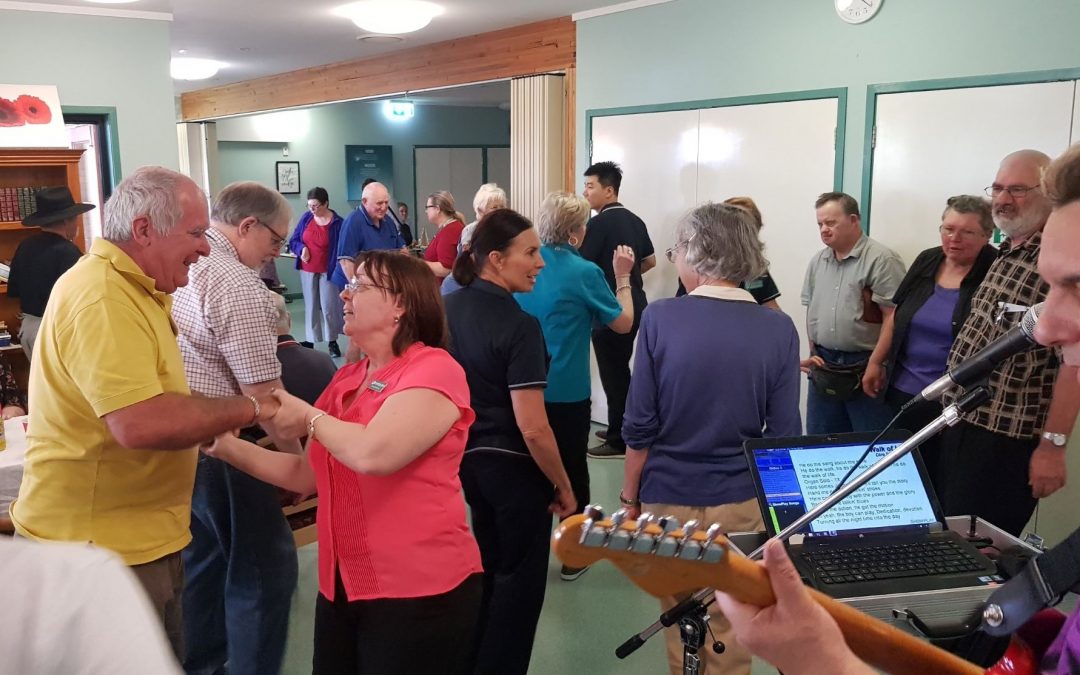NB: This article was first published in the Autumn 2020 edition of LASA Fusion magazine. It discusses group support and centre-based respite services, which are temporarily suspended due to the COVID-19 pandemic. Some providers are delivering group services online.
Centre-based service models are arguably more important now than ever, as an increasing number of Australians are being supported to live at home for longer.
While there are many benefits to remaining in a familiar environment, the downside is a risk of social isolation, due to changing demographics and family structures, and shifts in policy and community attitudes.
These developments have put a spotlight on the value of group support and centre-based respite in the Commonwealth Home Support Program.
To examine how the value of these services is perceived and key issues facing the sector, now and into the future, Brisbane North PHN and COTA Queensland decided to find out more.
The PHN leads a local consortium of 19 service providers, peak bodies and advocacy organisations—including COTA Queensland—collectively known as healthy@home, as part of the broader strategic work it undertakes to improve coordination of care.
The healthy@home exploratory project was based on a COTA Queensland-led consultation, which involved interviews with a mix of management and staff across six healthy@home member organisations, involving nine centre-based services. Participating organisations were Burnie Brae, Co.As.It Community Services, Centacare, Communify, Footprints and Greek Orthodox Community Care.
COTA Queensland also conducted a brief literature review, which found a focus on health and wellbeing and the integration of centre-based and group activities with community life were key elements of current and emerging models. Research shows these social connections have a positive effect on mood, behaviour and self-esteem; delay residential care for people with dementia; and improve quality of life for family caregivers.
Consultations found the community-related nature of centre-based support provides a safe gathering and meeting place, while creating an environment where people can share stories and interests, skills and knowledge, goodwill and companionship. This fosters a sense of belonging, value, joy and connection.
The importance of safety, be it physical, cultural or social, came up a lot in the consultations. This is particularly important for people living with physical frailty and dementia. As one respondent pointed out, centre-based respite is much more than ‘just a day out’.
Some centres have adapted their environment to connect with nature and animals. They might include a vegetable garden, chickens, plant nurseries, and landscaped gardens to walk and enjoy the outdoors in safety. Others have music and creative activities, whether it’s learning to play an instrument, linking into the local Men’s Shed or ‘sip and paint’ sessions (sipping wine while painting).
Some services arrange regular dance nights, which for some carers may be the only opportunity they have to socialise with their spouses. Services are also adapting to cater for the growing number of men attending activities.
Staff, volunteers and students are often teamed up with clients with common interests, such as fishing, gardening, knitting or walking. Bus trips and intergenerational activities are other popular ways of maintaining connections with the community.
Many services also offer flexible hours, so respite and social connection aren’t limited to business hours. Activities and services are designed to wrap around the person in a seamless way, increasing quality of life and quality of care. Keeping well—healthy eating, safe exercise, strength and balance building, and reablement—are embedded into planning and activities.
However, some people may initially be reluctant to consider group activities and providers identified a need to intensively support those experiencing higher levels of social isolation, particularly if they have never participated in group settings.
Recognising it could be a huge leap for someone to ‘give it a go’ there is often a need for a ‘warm’ referral to facilitate access.
The term ‘respite’ was also raised as a barrier to participation. Clients are more likely to say “I’m going to the centre” or “I’m going to the club”.
Other issues raised include a decrease in referrals since the introduction of My Aged Care, increasing demands on provider capacity to support high levels of complexity and needs, and rising infrastructure costs.
Regional Assessment Services also need to understand the various models and programs available, to ensure they offer the best fit for clients.
By addressing social isolation, centre-based day respite and group social support programs enable people to continue living well at home, while remaining connected to their community, potentially keeping them out of aged care homes. They also have significant benefits for carers, the community and the aged care workforce.
With constant policy shifts and changing community expectations, different and more flexible models need further examination. The next stage of this project will have a consumer focus, through broader engagement and collaboration with the community.
To comment or provide input into the next stage of consultation, please email julie.morrow@brisbanenorthphn.org.au.
Contributing author: Michele Smith – Executive Manager, Aged and Community Care | Brisbane North PHN.
Image caption: A centre-based respite social event in full swing at Centacare Community Services, Northgate.

